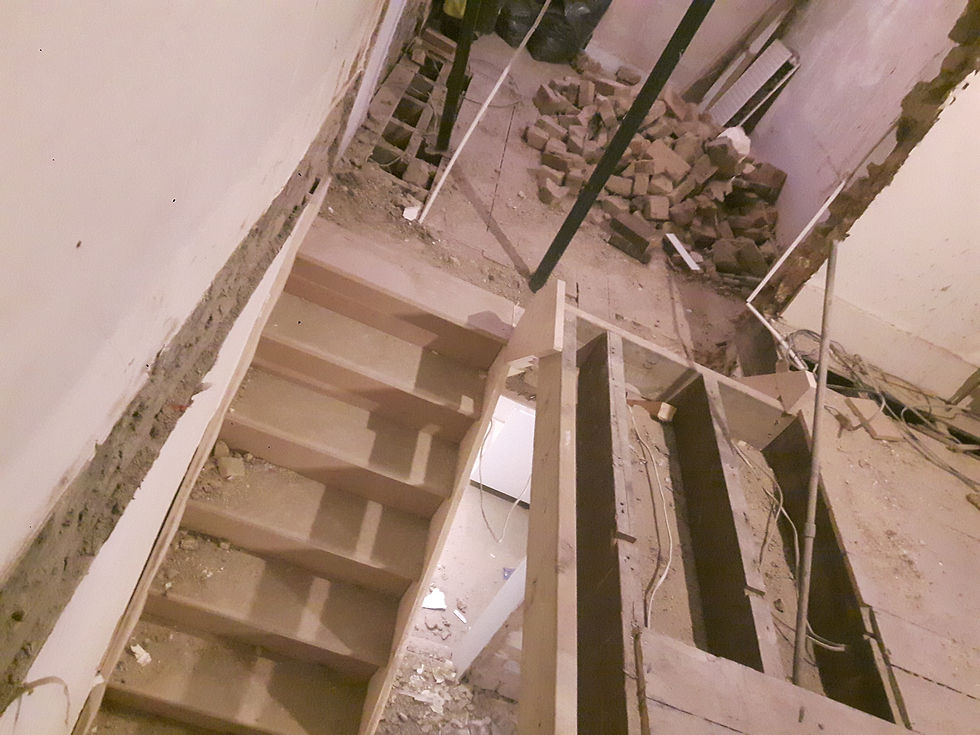Party Wall Agreement vs. Party Wall Award – What’s the Difference?
- Tom Norris

- Apr 3, 2025
- 3 min read
Updated: Sep 8, 2025
Expert Explanation for Homeowners Across London & the Home Counties

Introduction
If you’re planning a loft conversion in Balham, a basement dig in Kensington, or an extension in Surrey, you’ve probably been told you need a Party Wall Agreement. But when you start researching, you see surveyors talking about a Party Wall Award instead.
Are they the same thing? Which one do you actually need? This guide will break it down in plain English so you can understand exactly what’s required for your project — and avoid costly delays or mistakes.
Quick Answer: Agreement vs. Award
Term | Meaning | When Used |
Party Wall Agreement | Informal term homeowners use for written consent or an Award. | Often used casually but not a legal document by itself. |
Party Wall Award | The official, legally binding document drafted by a surveyor under the Party Wall Act. | Required if neighbours dissent or fail to respond. |
Key takeaway:
A Party Wall Agreement is a general phrase.
A Party Wall Award is the formal, enforceable legal document created under the Party Wall etc. Act 1996.
What Is a Party Wall Agreement?
Most homeowners use this term when they:
Get written consent from their neighbour after serving a Party Wall Notice.
Believe that mutual agreement is enough to start work.
While this consent is valid if properly documented, it’s not legally enforceable like a Party Wall Award.
What Is a Party Wall Award?
A Party Wall Award is the official document prepared by a surveyor (or surveyors) when a neighbour dissents or fails to respond to a notice.
It includes:
Full details of the proposed work.
How and when the work will be carried out (working hours, access rights, protective measures.
A Schedule of Condition documenting the neighbour’s property pre-works.
How disputes will be handled.
Who is responsible for fees and repairs (usually the building owner).
The Award is legally binding and protects both parties.
When You Need an Award vs. Simple Consent
Scenario | Do You Need an Award? |
Neighbour consents in writing | No Award needed, but a Schedule of Condition is recommended. |
Neighbour dissents | Yes, an Award is mandatory. |
Neighbour ignores notice (14 days) | Yes, treat as dissent; appoint surveyors and issue Award. |
Complex projects (basements, listed buildings) | Award strongly recommended, even with consent. |
Why This Confusion Exists
The Party Wall Act is full of technical terms, and many websites use “Agreement” interchangeably with “Award.” Homeowners often assume that a signed letter from a neighbour is enough—but if disputes arise, only an Award carries legal weight.
Why a Party Wall Award Is Safer
Even if your neighbour consents, a Party Wall Award:
Documents the exact condition of their property before work begins.
Sets clear boundaries for working hours, access, and safety.
Reduces risk of false damage claims.
Prevents legal injunctions that could stop your project.
Think of it as insurance for your renovation.
Example Scenarios
Scenario 1: Loft Conversion with Consent
A homeowner in Streatham served notices for a loft conversion. Both neighbours consented in writing.
Work went ahead smoothly, but a Schedule of Condition was done to prevent disputes.
Cost: £300 for the condition report, no Award needed.
Scenario 2: Basement Excavation with Dissent
A Kensington homeowner planned a basement. One neighbour dissented due to vibration concerns.
MET Surveyors drafted a Party Wall Award with protective measures and monitoring.
Result: Project approved legally, work completed without delays.
The Process: From Notice to Award
Step | Action | Timeline |
1. Serve Party Wall Notice | Sent to all adjoining owners. | 2 months before work |
2. Wait for Response | Consent, dissent, or no response. | 14 days |
3. Appoint Surveyor(s) | If dissent or silence. | 1–2 weeks |
4. Schedule of Condition | Inspect and document neighbour’s property. | 1–2 weeks |
5. Draft & Serve Award | Legally binding document issued. | 2–6 weeks |
Costs: Agreement vs Award
Service | Typical Cost | Notes |
Written Consent Only | £0–£300 | No Award; consider a condition survey. |
Full Party Wall Award (1 neighbour, agreed surveyor) | £1,000–£1,500 | Includes survey, Award drafting, admin. |
Complex Award (multi-owner or basement) | £2,000+ | Reflects added complexity. |
FAQs
Q: Is a Party Wall Agreement legally binding? Only if it’s a Party Wall Award issued by a surveyor.
Q: Can I skip an Award if my neighbour consents? Yes, but we strongly recommend at least a Schedule of Condition.
Q: Does this apply in the Home Counties too? Yes, the Party Wall Act applies across England and Wales.
Why Choose MET Surveyors
Clarity: We’ll tell you exactly what’s required for your project.
Expertise: Specialists in London’s terraced homes, flats, and basements.
Protection: Awards and condition surveys to prevent disputes.
Coverage: London boroughs and all Home Counties: Surrey, Kent, Essex, Hertfordshire, Berkshire.
Next Steps: Get Clarity on Your Project
Not sure if you need a Party Wall Agreement or an Award? We’ll review your plans and tell you exactly what you need — no jargon, no delays.
Book a Callback: Speak to a Party Wall expert today.







Comments